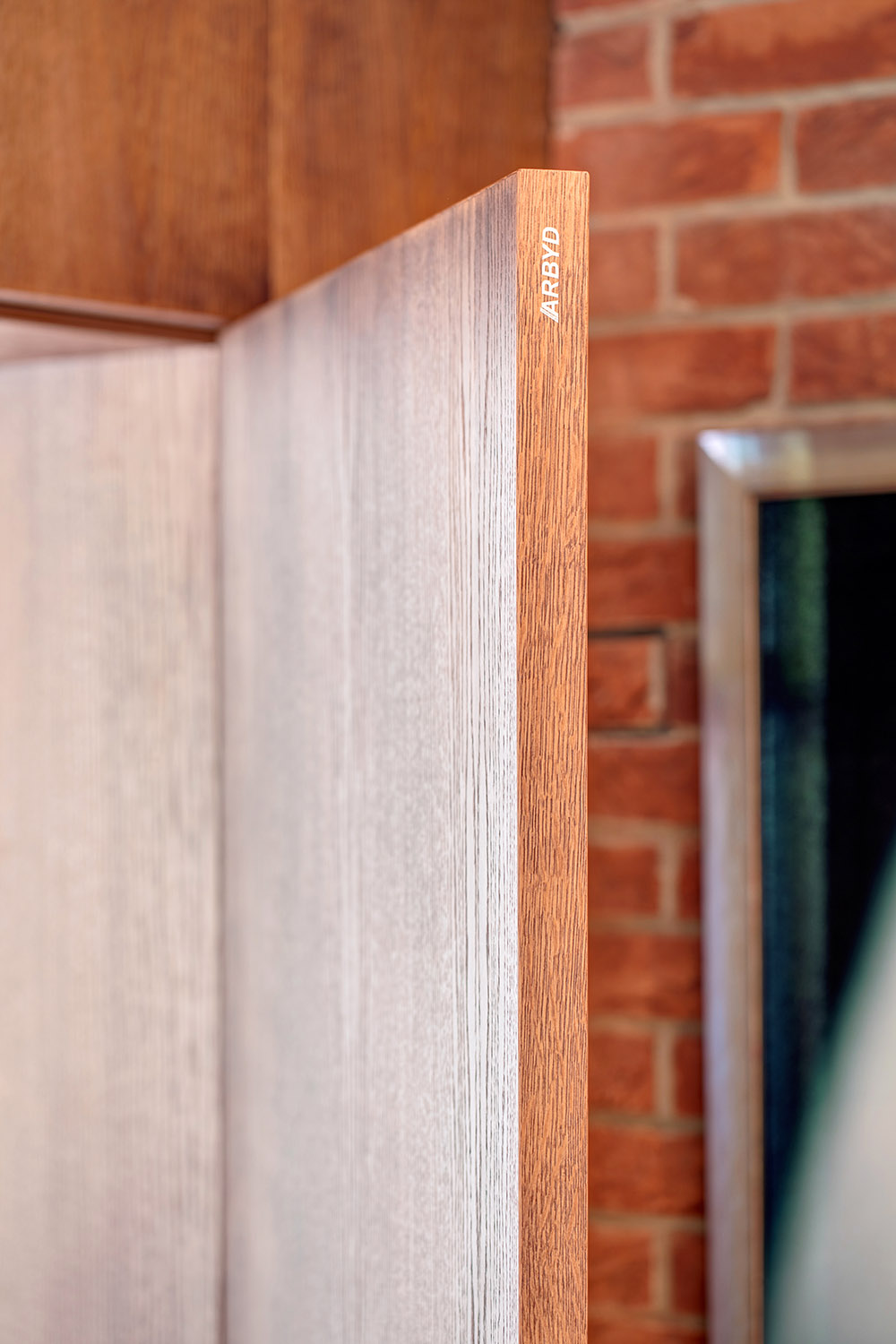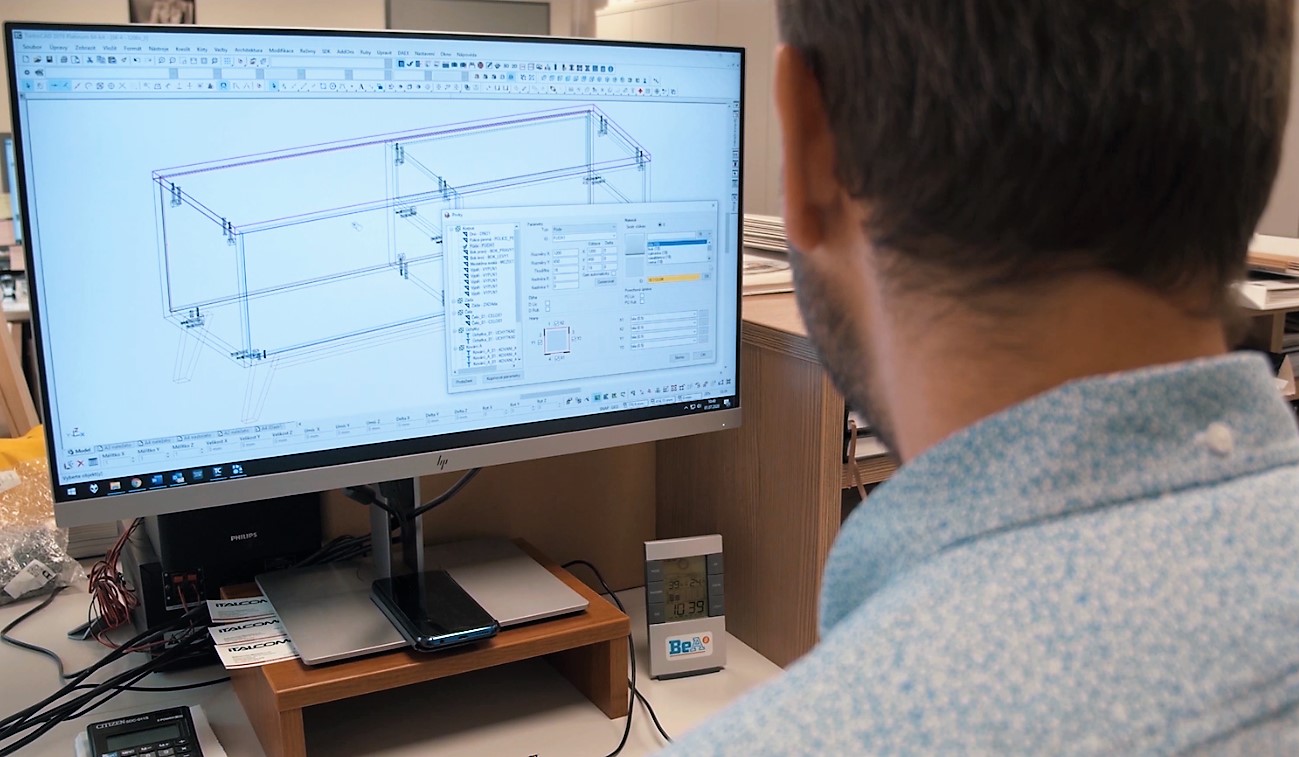Commercial Terms and Conditions of ARBYD CZ s.r.o., company registration number: 26339269
I. Basic Provisions
These General Commercial Terms and Conditions (hereinafter referred to as the "GCTC") regulate the relationships between the parties to a purchase contract where ARBYD CZ s.r.o., company registration number 26339269, tax identification number CZ26339269 , with the registered office at Chotíkov 388, 330 17 Chotíkov, incorporated in the Commercial Register kept by the Regional Court in Plzeň, Section C, Insert 13984 is one party, as the seller (hereinafter referred to as the "Seller") and a buyer (hereinafter referred to as the "Buyer") is the other party.
In the event of a conflict between these GCTC and a valid contract, the provisions of the contract will prevail.
A Buyer means a consumer or businessman.
A Consumer is every person who concludes a contract with the Seller or who deals with the Seller outside his/her business or outside the independent exercise of his/her job.
A Businessman is a person who performs a gainful activity on his/her own account and responsibility in a trade or a similar manner with the aim to do so consistently for profit. A businessman also means, i.a. for the purpose of protection of the consumer, every person who concludes contracts connected with his/her own business, production or similar activity or during an independent exercise of his/her job or, as appropriate, a person who acts in the name or on behalf of a businessman. A businessman for the purpose of the GCTC means a person who acts in accordance with the previous sentence within his/her business activity. If a Buyer gives his/her identification number in an order, he/she acknowledges that the rules given in the GCTC for Businessmen apply to him/her.
If "Buying Consumer" or only "Consumer" is given in these GCTC, the relevant provision of the GCTC does not apply to a buying businessman.
By accepting the offer of the Seller (see Article III paragraph 1 of the GCTC) the Buyer confirms to have become familiar before the contract conclusion with these GCTC that include, as integral part, the statements before the contract conclusion contained in Article II, Complaint Procedure and to expressly agree with them as amended on order sending.
II. Statements Before Contract Conclusion
The Seller states that
1. The costs of the means of distant communication are not different from the basic rate (according to the conditions of the operator of the Buyer in case of Internet and telephone connection; the Seller does not charge any other fees; this does not apply to contractual transportation);
2. It requires the purchase price to be paid before the contract conclusion, as agreed
3. The prices of goods and services are given without VAT; VAT in the statutory amount will be added to the price; the costs of delivery of the goods or a service will be determined on an individual basis and quantified before the confirmation of the purchase contract.
III. Contract
1. Concluding a contract
The Seller will prepare a written offer for the inquired goods based on the inquiry of the Buyer. The purchase contract is concludes upon the written confirmation of the offer to the Seller by the Buyer.
The Seller has the right to make the offer time-limited, with the contract only being concluded if the Buyer confirms the offer in the offer validity period. Any later acceptation will not be binding upon the Seller, unless expressly agreed otherwise by the parties.
Communication through email or fax is also considered a written form.
2. Delivery of the subject of purchase
The Seller undertakes with the purchase contract to give over a thing (hereinafter referred to as the "Goods") that is the subject of purchase to the Buyer and enable the Buyer to acquire the title to that thing and the Buyer undertakes to accept the thing and pay to the Seller the purchase price.
The Seller reserves the title to the thing, which is why the Buyer will become the owner only after full payment of the purchase price.
The Seller will give the thing over to the Buyer, including the documents relating to the thing and enable the Buyer to acquire the title to the thing in accordance with the contract.
The Seller will fulfil the obligation to give over a thing to the Buyer if the Seller enables to the Buyer to handle the thing in the place of performance and notifies the Buyer thereof in time.
If the Seller is to send the thing, the Seller will give the thing over to the Buyer (businessman) by handing the thing to the first carrier for transport to the Buyer and enable the Buyer to exercise the rights from the transportation contract towards the carrier. The Seller will give over the thing to the Buyer – consumer only after the carrier has given the thing to the Buyer.
The Seller will give the subject of purchase over to the Buyer in the agreed quantity, quality and design.
Unless it is agreed how the thing should be packed, the Seller will pack the thing according to customs; if no customs are in place, then in a manner necessary to preserve and protect the thing. The Seller will provide the thing for transport in the same way.
3. Transfer of the Risk of Damage
A thing is defective if it does not have the agreed properties. A defect will also mean a performance of any other thing and errors in documents necessary for the use of the thing.
The right of the Buyer from defective performance is established by a defect that the thing has during the transfer of the risk of damage to the Buyer, although it is manifested later. The right of the Buyer will also be established by a defect that occurs later and that the Seller has caused by a breach of its obligation.
If possible, the Buyer will inspect the thing as soon as possible after the transfer of the risk of damage to the thing and check the properties and quantity.
The risk of damage will be transferred to the Buyer upon the acceptance of the thing. There will be the same effect if the Buyer does not accept the thing although the Seller has enabled the Buyer to handle it.
If goods are transported by a third person, the risk of damage will be transferred to the Buying Businessman upon the handover of the thing to the first carrier. The risk of damage will be transferred to the Buying Consumer upon the acceptance of the thing.
A damage to the thing, incurred after the transfer of the risk of damage to the thing to the Buyer, does not affect the obligation of the Buyer to pay the purchase price, unless the Seller has caused the damage by breaching its obligation.
A delay of one party with the acceptance of the thing will establish a right to the other party to sell the thing in an appropriate manner after a prior notice to the party in delay and after the party in delay has been provided a sufficiently reasonable time for acceptance. This also applies if a party is in delay in the payment by which thing handover is conditioned.
4. Rights from Defective Performance – Specified by the Complaints Procedure
The Seller is liable to the Buyer for ensuring the fact the thing does not have any defect during acceptance. The Seller is in particular liable to the Buyer that at the time the Buyer has accepted the thing
1. The thing has the properties agreed by the parties and if no arrangement regarding properties has been made, then such properties that the Seller or manufacturer has described or that the Buyer has expected with regard to the nature of the goods and based on the advertising of the Seller;
2. The thing is fit for the purpose stated by the Seller for its use or for which a thing of this type is usually used;
3. The thing is in the right quantity, extent or weight; and
4. The thing meets the requirements of the applicable legislation.
The Buying Consumer is entitled to exercise the right from defect that occurs in respect of a consumer product in twenty-four months from the acceptance, unless otherwise provided; this, however, does not apply to:
1. A defect of a thing sold at a lower price that has been agreed due to that defect;
2. Wear of a thing caused by its usual use;
3. In respect of a used thing, to a defect corresponding to the degree of use or wear that the thing had upon the acceptance thereof by the Buyer; or
4. If it arises from the nature of the thing.
The respective terms are specified by the Complaints Procedure.
The Buying Businessman is entitled to exercise the right from defect that occurs in respect of a consumer product in twenty-four months from the acceptance.
The Buyer does not have the right from defective performance if the Buyer knew before taking over the thing that the thing had a defect and/or if the Buyer has caused the defect himself/herself/itself.
If a thing does not have the properties determined in section 2161 of the Civil Code, the Buyer-Consumer may require delivery of a new thing without defects, unless it is unreasonable with regard to the nature of the defect but if a defect only relates to a component of a thing, the Buyer may only require replacement of that component; if it is not possible, the Buyer may withdraw from the contract. If, however, it is unreasonable with regard to the nature of the defect, in particular if the defect can be removed without undue delay, the Buyer is entitled to free removal of the defect. If the Buyer-Consumer does not withdraw from the contract or if he/she/it does not exercise the right to a delivery of a new thing without defects, replacement of its component or repair of the thing, he/she/it may require a reasonable discount. The Buyer-Consumer is also entitled to a reasonable discount if the Seller cannot deliver a new thing without defects to the Buyer-Consumer, replace its component or repair the thing and when the Seller fails to remedy the situation in a reasonable time or if the remedy would cause significant difficulties to the Buyer-Consumer.
a) Substantial breach of the contract
If defective performance is a substantial breach of the contract, the Buying Consumer is entitled:
1. To removal of the defect by delivering a new thing without defect or delivering a missing thing, unless it is unreasonable with regard to the nature of the defect but if the defect only relates to a component, the Buying Consumer may only require replacement of the thing; if it is not possible, the Buying Consumer may withdraw from the contract. If, however, it is unreasonable with regard to the nature of the defect, if, in particular, the defect can be removed without undue delay, the Buying Consumer is entitled to free removal of the defect;
2. To defect removal by repairing the thing;
3. To a reasonable discount from the purchase price; or
4. To withdraw from the contract.
The Buying Consumer will notify the Seller of the right he/she/it has chosen when notifying the defect or without undue delay after notifying the defect. The Buyer may not change the selected option without the consent of the Seller; this does not apply if the Buying Consumer has requested a repair of a defect that turns out to be irreparable. If the Seller does not remove the defects in a reasonable time or if the Seller informs the Buying Consumer that the Seller will not remove the defects, the Buying Consumer may require, instead of defect removal, a reasonable discount from the purchase price or the Buying Consumer may withdraw from the contract.
If the Buying Consumer does not choose his/her/its right in time, he/she/it will have the rights as in case of a minor breach of the contract – see below.
b) Minor breach of the contract
If defective performance is a minor breach of the contract, the Buying Consumer is entitled to defect removal and/or to a reasonable discount from the purchase price.
The Seller may deliver what is missing or remove a legal defect until the Buying Consumer exercises the right to be given discount from the purchase price or withdraws from the contract. Other defects may be removed by the Seller, in its discretion, either by repairing the thing or delivering a new thing.
If the Seller does not remove a defect of a thing in time or refuses to remove a defect of a thing, the Buying Consumer may require a discount from the purchase price and/or withdraw from the contract. The Buying Consumer may not change the selected option without the consent of the Seller.
The Consumer bears the costs connected with returning the goods in case of withdrawal from the contract.
For the Buyer-Businessman the following is agreed differently from the relevant provisions of Act No. 89/2012 Coll., the Civil Code (hereinafter referred to as the "Civil Code") in case of defective performance:
- Occurrence of a repairable defect or repairable defects is always considered a minor breach of the contract, not a substantial breach of the contract,
- In the event of a minor breach of the contract the Buyer – Businessman is entitled to defect removal and/or reasonable discount from the purchase price, as selected by the Seller,
- In the event of a substantial breach of the contract the Buyer – Businessman is entitled to a reasonable discount from the purchase price or withdrawal from the contract.
IV. Withdrawal from the Contract
1. Withdrawal from the contract in case of contract conclusion at distance
The Consumer has the right to withdraw from the contract concluded at distance (i.e. using a mean of communication that allows a contract to be concluded without simultaneous presence of parties) in fourteen days. The time according to the first sentence runs from the date of contract conclusion and for
1. A purchase contract, from the acceptance of the goods;
2. A contract, the subject matter of which includes several types of goods or delivery of several parts, from the acceptance of the final delivery of goods; or
3. A contract, the subject matter of which includes a regular repeated delivery of goods, from the acceptance of the first delivery of goods.
The Consumer may not withdraw from a contract:
1. For the provision of services that the Seller has fulfilled with the prior express consent of the Consumer before the expiry of the term for the withdrawal from the contract;
2. For the delivery of goods or a service, the price of which depends on fluctuations on financial markets beyond the control of the Seller and which may occur during the term for the withdrawal from the contract;
3. For the delivery of goods adjusted as required by the Consumer or for his/her/its person;
4. For the delivery of goods that are subject to rapid deterioration as well as goods irrevocably mixed with other goods after being delivered;
5. On a repair or maintenance performed in the place determined by the Consumer at his/her/its request; this, however, does not apply to subsequent execution of other than requested repairs or delivery of other than requested spare parts;
In the event of withdrawal from the contract the Consumer will bear all costs of returning the goods, both when the goods may be returned by a standard postal route and when the goods may not, for their nature, be returned by a standard postal route.
The Consumer has an obligation to pay a proportionate part of the price in case of withdrawal from the contract, the subject matter of which includes the provision of services and the performance of which has already begun;
The Seller enables the Consumer to withdraw by sending a notice to this address: nabytek@arbyd.cz.
If the Consumer withdraws from the contract, he/she/it will send or hand over to the Seller, without undue delay, not later than fourteen days from the withdrawal from the contract, the goods he/she/it has received from the Seller.
The Consumer should return the goods complete, i.e. including all the delivered accessories, with complete documentation, undamaged, clean and if possible including the original packaging, in the state and value in which he/she/it has accepted the goods.
The Consumer is only liable to the Seller for the reduction of the value of the goods that has occurred as a result of handling these goods other than it is necessary to handle them with regard to their nature and properties.
If the Consumer withdraws from the contract, the Seller will return to the Consumer, without undue delay, not later than fourteen days from the withdrawal from the contract, all funds it has received from the Consumer under the contract; the Seller will return the funds in the same way. If the Consumer has chosen any other, not the cheapest way of delivery of the goods offered by the Seller, the Seller will refund to the Consumer the costs of delivery of the goods in an amount corresponding to the cheapest offered way of delivery of the goods.
If the Consumer withdraws from the contract, the Seller is not obliged to return the received funds to the Consumer before the Consumer has handed the goods over to the Seller or before the Consumer has proven that the same has sent the goods to the Seller.
The Consumer acknowledges the fact that if presents are provided with the goods, the contract of donation between the Seller and the Buyer is concluded with the condition that if the right to withdraw from the purchase contract is exercised in 14 days, the contract of donation will expire and the Consumer is obliged to return, together with the returned goods, the related presents provided, including everything by which the Consumer has enriched. If they are not returned, such values will be deemed unjust enrichment of the Consumer. If the release of the subject of the unjust enrichment is not well possible, the Seller is entitled to cash compensation in the amount of the usual price. In the event of withdrawal from the contract of donation, the purchase contract does not expire and the contracts are evaluated separately from this perspective.
2. Withdrawal in other cases
If based on an individual arrangement between the Buying Businessman and the Seller the Buying Businessman is allowed to withdraw from the purchase contract under the terms and conditions laid down in Article IV 1. of the GCTC (otherwise specified only for the Consumer), the Buyer acknowledges that the returned purchase price may be reduced by the reduction of the value of the goods.
The Buyer may not withdraw from the contract or request delivery of a new thing if he/she/it is unable to return the thing in the state in which he/she/it has received it. This does not apply
1. If the change of the state is caused as a result of an inspection to detect a defect of the thing;
2. If the Buyer had used the thing before discovering the defect;
3. If the Buyer has not caused the impossibility to return the thing in an unchanged state by his/her/its action and/or omission; or
4. If the Buyer had sold the thing before discovering the defect or consumed and/or changed it during normal use; if this has occurred only to some extent, the Buyer will return to the Seller what may be returned and will give the Seller compensation up to the amount to which the Buyer has had benefit from the use of the thing.
If the Buyer has not notified of a defect of a thing in time, he/she/it will lose the right to withdraw from the contract.
V. Prices
The prices are given in the offer of the Seller sent to the Buyer. The price offer may not be final if there is a need of any activity not included in the budget if such an activity was not foreseeable at the time of contract conclusion.
If an order is confirmed, the Seller reserves the right to issue a pro-forma invoice amounting to 50 % (or as agreed by the contracting parties) of the price without VAT of the ordered value. After payment allocation, the order will be forwarded for processing.
VI. Ordering
Orders are sent electronically to the following address:
nabytek@arbyd.cz or to a specific employee with whom the order is being dealt with or, as appropriate, to the postal address ARBYD CZ s.r.o., Chotíkov 388, 330 17 Chotíkov.
VII. Terms of Payment
Terms of payment are based on an individual agreement with the Buyer and specified before contract conclusion.
VIII. Delivery Terms
1. Methods of delivery
The Seller will specify the form of delivery before contract conclusion.
2. Handover of the goods
By signing the delivery note the Buyer confirms its accuracy. Any discrepancy and reservation to the delivery of goods must be given by the Buyer on the delivery note upon goods acceptance.
3. Storage
In case the buyer does not receive the goods from the seller within 14 days of the date on which the seller allowed him to dispose with goods, the seller may charge for goods in storage.
The amount of storage fee will be solved individually based on the total quantity and storage time.
IX. Force majeure
For the purposes of this provision, "force majeure" means an extraordinary and unavoidable event beyond the control of the Contracting Part which invokes it, which it could not have foreseen when concluding the Contract and which prevents it from fulfilling its obligations under this Contract. Such events may be wars, revolutions, fires, floods, epidemics, quarantine restrictions, embargoes, general strikes and strikes by the entire industry if they immediately jeopardize the execution of the Work.
In case it will be necessary to interrupt the implementation of the Work due to force majeure, it will be an extraordinary, unpredictable and insurmountable obstacle on the part of the Contractor which is not dependent on their will and the Contractor is obliged to notify the Client of the event and provide them with documented expected impact on the execution of the Work. The Contractor is not responsible for delays caused by force majeure. These cases of delay in the execution of the Work are not covered by the Client's right to a contractual penalty, interest on arrears, damages or any other compensation. In the event of interruption of the Contractor's work for the execution of the Work for the reasons stated above, the Contractor has the right to charge and invoice the Client for the goods already delivered and work performed as well as for goods (materials, products of other suppliers, etc.) which was already procured but could not be delivered due to work interruptions.
Due to global problems with the availability of materials, fittings, components, etc., ARBYD CZ s.r.o. reserves the right to cut-off the execution of the work, to change the delivery date of the goods or to change the prices already confirmed, if such conditions are set by the supplier and ARBYD CZ s.r.o.
X. Warranty Conditions
The warranty conditions for the goods are governed by the Complaints Procedure of the Seller and the applicable legal regulations of the Czech Republic. The proof of purchase is usually used as the warranty card (see the Complaints Procedure for more details).
XI. Final Provisions
Consumers have the right to send any complaints (out-of-court settlement) to nabytek@arbyd.cz. Complaints will be addressed by the Seller through email communication or, as appropriate, personal dealing with the Consumer.
Relations and any disputes arisen under the contract (and that are not settled out of court according to the previous paragraph) will be addressed exclusively under the laws of the Czech Republic and resolved by the competent courts of the Czech Republic.
The contract is concluded in Czech. If the text of the contract is translated for the needs of the Buyer, the interpretation of the contract in Czech will prevail in case of any dispute regarding the interpretation of the terms.
These General Commercial Terms and Conditions including their parts are valid and effective from 3 January 2020. They are available in the headquarters and business premises of the Seller or in an electronic version at http://www.arbyd.cz/cs/o-nas/vseobecne-obchodni-podminky/.
Complaints Procedure of ARBYD CZ s.r.o., company registration number: 26339269
Forn the settlement of rights from the liability for defects of a sold thing
1. This Complaints Procedure addresses the settlement of rights from defective performance of sold movable property (goods) within the meaning of the provisions of Act No. 89/2012 Coll., the Civil Code, as amended and in accordance with the provisions of Act No. 634/1992 Coll. on consumer protection, as amended.
The provisions of the contract will prevail in case of any dispute between this Complaints Procedure and a valid contract.
2. A Buyer means a Consumer or Businessman, see the GCTC.
3. The Seller is liable to the Buyer for ensuring the thing being sold is in accordance with the purchase contract upon the acceptance by the Buyer, in particular, without any defect. For things sold at a lower price the warranty does not apply to defects for which the lower price has been agreed.
4. The Buyer is obliged to immediately inspect the sold thing with the necessary care upon the acceptance thereof, which also appropriately applies to cases where defects of the thing being sold are detectable only after opening the package of the thing being purchased. The Buyer may require, if the nature of the thing allows, that the thing is inspected or its activity demonstrated before him/her/it.
5. If thing has apparent defects upon the acceptance by the Buyer, i.e. it is not in accordance with the purchase contract, the Buyer has the right that the Seller puts the thing, for free and without undue delay, to the state corresponding to the purchase contract, as required by the Buyer, either by replacing or repairing the thing. If such procedure is not possible, the Buyer may require a reasonable discount from the price of the thing being sold or withdraw from the contract. This does not apply if the Buyer had known or could have known about the conflict with the purchase contract before the acceptance of the thing or if the conflict with the purchase contract has been caused by the Buyer. In such a case, the defect is to the determinant of the Buyer.
6. The right of the Buyer from defective performance is established by a defect that the thing has upon the transfer of the risk of damage to the thing to the Buyer, although it may be manifested later. The right of the Buyer is also established by a defect that occurs later which the Seller has caused by breaching its obligation.
The Buyer-Consumer is entitled to exercise the right from defect that occurs in respect of the goods in twenty-four months from the acceptance.
The Buyer-Businessman is entitled to exercise the right from a hidden defect that occurs in respect of the goods (in twenty-four months from the acceptance). The right arising from an apparent defect must be exercised by the Buyer-Businessman not later than two days from the acceptance of the goods.
If the manufacturer (different from the Seller) provides a warranty period for a product, defects from sold goods may also be exercised in such period but only if the complaint conditions laid down by the manufacturer are met. Warranty periods start from the acceptance of the thing by the Buyer. If any other businessman is to put a purchased thing into operation, the warranty period will start after the thing is put into operation if the Buyer has ordered the putting into operation not later than three weeks from the acceptance of the thing and has provided the necessary assistance to perform that service properly and in time.
7. The right from defective performance does not apply to wear of a thing caused by its usual use, improper use, due to weather conditions, unprofessional handling, transport, intentional damage, to defects of which the customer has been notified in writing in the purchase contract, to silicone and acrylic joints or by treatment not in accordance with the instructions for maintenance that are in a simplified form part of the delivery note and in full electronic wording at http://www.arbyd.cz/cs/o-nas/navody-na-udrzbu-nabytku/. The Buyer is obliged to become familiar with such instructions before the actual maintenance of the goods.
8. Rights from the liability for defects are exercised with the Seller from which the thing has been purchased, without undue delay after the Buyer has had an opportunity to inspect the thing, however, not later than before the expiry of the specified warranty period. The Buyer is obliged to specify any detected apparent defects of the sold thing essentially before the use thereof.
9. The purchase of the claimed thing must be evidenced by the Buyer by the proof of purchase and, if possible, submit the defective thing for evaluation or otherwise enable the Seller to inspect the subject of claim.
10. In a timely claim the Buyer must both specify the particular defect (defects) of the sold thing or, as appropriate, designate the defective properties of the thing or the circumstances preventing its use and state which specific right from defective performance the Buyer is exercising.
11. If the Buyer meets the conditions for claiming a defect according to this Complaints Procedure, the Seller will accept the claim for settlement; otherwise, the claim will be rejected by the Seller. In simple cases, the Seller or a person authorised by the Seller will decide on a claim immediately while in more complex cases claims will be decided in three working days; an adequate time depending on the type of product or service necessary for an expert assessment of the defect is not included in such period.
12. If a justified claim relates to a defect that may be removed, the Buyer-Consumer has the right that the defect is removed for free, in time and in a proper manner and the Seller is obliged to remove the defect without undue delay. If this is not reasonable due to the nature of the defect, the Buyer may require replacement of the thing or if the defect only relates to a component of a thing, then replacement of that component. If such procedure is not possible, the Buyer may ask for a reasonable discount from the price of the thing or withdraw from the purchase contract.
13. If a justified claim relates to a defect that cannot be removed and that prevents the proper use of the thing, the Buyer-Consumer is entitled to replacement of the thing or has the right to withdraw from the purchase contract. The Buyer-Consumer has the same rights if defects are removable but the Buyer cannot use the thing properly due to repeated occurrence of the defect after repair or due to a higher number of defects. Repeated occurrence means if the same defects occurs again after two previous repairs. A higher number of defects, depending on the circumstances of a specific case, means at least three defects of a thing where the Buyer cannot use the thing in the long term due to that higher number of defects so the Buyer cannot be reasonably required to continue suffering from such restriction.
14. In case of other irremovable defects and when the Buyer does not require replacement of the thing the Buyer-Consumer is entitled to a reasonable discount from the price of the thing or the Buyer may withdraw from the contract if he/she/it has notified the defect of the thing in time.
15. For the Buyer-Businessman the following is agreed differently from the relevant provisions of the Civil Code in case of defective performance:
- Occurrence of a repairable defect or repairable defects is always considered a minor breach of the contract, not a substantial breach of the contract,
- In case of a minor breach of the contract the Buyer-Businessman is entitled to defect removal and/or a reasonable discount from the purchase price, as selected by the Seller,
- In case of a substantial breach of the contract the Buyer-Businessman is entitled to a reasonable discount from the purchase price or has the right to withdraw from the contract.
16. If goods are replaced based on an accepted claim, the warranty period is suspended for the time for which the claim was being settled. The same applies in case of replacement of a component for which warranty has been provided.
17. A claim where the Buyer is a Consumer, including the defect removal, must be settled without undue delay not later than 30 days from the submitting of the claim, unless a longer time is agreed between the Seller and the Buyer. A claim where the Buyer is a Businessman, including the defect removal, must be settled without undue delay not later than 30 days from the submitting of the claim, unless a longer time is agreed between the Seller and the Buyer.
18. Any rights from the liability for defects will be exercised by the Buyer with ARBYD CZ s.r.o., in writing at the company address: Chotíkov 388, 330 17 Chotíkov or by email at nabytek@arbyd.cz.
19. By concluding the purchase contract and accepting the goods from the Seller the Buyer agrees with this Complaints Procedure.










